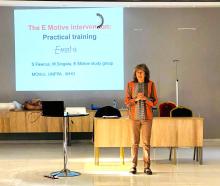Zimbabwe moves to tackle heavy postpartum bleeding
Harare – In response to the alarming rates of maternal mortality caused by Postpartum Hemorrhage (PPH), Zimbabwe is adopting the World Health Organization (WHO) E-MOTIVE approach, a pioneering strategy proven to save lives in low-resource settings. Postpartum hemorrhage remains a leading cause of maternal death globally, responsible for a quarter of all such deaths annually. In Zimbabwe, with a Maternal Mortality Ratio (MMR) of 462 deaths per 100,000 live births, urgent measures are needed to prevent these tragic losses.
The WHO E-MOTIVE bundle is an innovative approach which focuses on early detection, swift intervention, and escalation of care when necessary. It equips healthcare providers with tools and protocols to effectively manage PPH, thereby reducing severe bleeding and the need for blood transfusions— critical in regions where blood resources are scarce and expensive.
Following successful trials in several African countries, including South Africa, Kenya, Tanzania, and Nigeria, where the E-MOTIVE approach demonstrated a 60% reduction in severe bleeding incidents, the Ministry of Health and Child Care (MoHCC), in partnership with WHO, UNFPA, University of Cape-Town, and Walter Sisulu University spearheaded the adoption effort. A tailored implementation strategy was crafted, encompassing comprehensive training for healthcare providers, procurement of necessary supplies such as PPH boxes, and establishment of local champions to advocate for protocol adherence.
“We are hopeful that this approach will significantly reduce both cases of severe PPH and the rate of blood transfusions for bleeding. This is particularly important in Zimbabwe, where blood is scarce and expensive,” noted Dr Lucia Gondongwe, MoHCC Deputy Director, Family Health Department.
In preparation for nationwide deployment, Zimbabwe convened a team of 75 obstetric and midwifery experts to adapt the E-MOTIVE approach to local needs. Training workshops in 5 Central hospitals and 4 provinces namely Midlands, Mashonaland West, Manicaland and Masvingo, ensured that 40 midwives and doctors were equipped as trainers to roll out a pilot for the initiative. Essential supplies and equipment were distributed to healthcare facilities, ensuring readiness for immediate implementation upon completion of training.
“The global burden of preventable maternal deaths due to PPH, particularly in Sub-Saharan Africa, is devastating. Developing a PPH protocol specifically for the Zimbabwean context, supported by extensive training and a robust implementation strategy, was a crucial intervention I am honoured to be part of,” says Professor Sue Fawcus, Senior Research Scholar Department Obstetrics and Gynaecology, University of Cape Town and co-PI for E Motive research trial South Africa.
To back the roll out of the programme, WHO will support the updating of protocols on PPH management, cascading of training, integration of the E-MOTIVE approach in the existing programs and evaluating the impact of the E-MOTIVE approach. Funding for this crucial activity is coming from the European Commission, Directorate- General, Development and Cooperation (DEVCO).
"WHO is thrilled to see Zimbabwe take such a proactive step towards reducing maternal deaths and we are confident this strategy will have a significant positive impact on maternal health outcomes in the country," said Zvanaka Sithole, WHO Zimbabwe Technical Officer – Reproductive, Maternal, Newborn and Child Health (RMNCAH).
Vivian Mugarisi
External Relations Officer
Email: mugarisiv [at] who.int (mugarisiv[at]who[dot]int)
